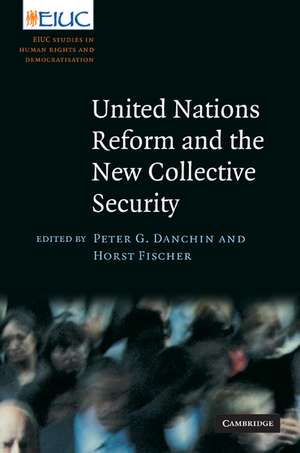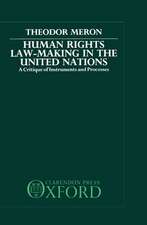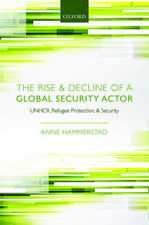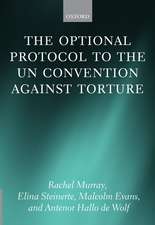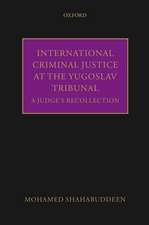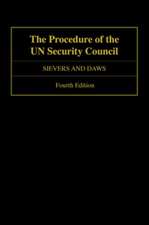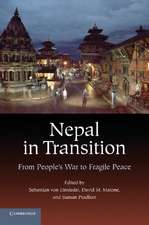United Nations Reform and the New Collective Security: European Inter-University Centre for Human Rights and Democratisation
Editat de Peter G. Danchin, Horst Fischeren Limba Engleză Hardback – 27 ian 2010
Preț: 821.79 lei
Preț vechi: 955.57 lei
-14% Nou
Puncte Express: 1233
Preț estimativ în valută:
157.28€ • 163.76$ • 132.92£
157.28€ • 163.76$ • 132.92£
Carte tipărită la comandă
Livrare economică 10-24 martie
Preluare comenzi: 021 569.72.76
Specificații
ISBN-13: 9780521515436
ISBN-10: 0521515432
Pagini: 450
Ilustrații: 1 table
Dimensiuni: 156 x 235 x 19 mm
Greutate: 0.82 kg
Editura: Cambridge University Press
Colecția Cambridge University Press
Seria European Inter-University Centre for Human Rights and Democratisation
Locul publicării:Cambridge, United Kingdom
ISBN-10: 0521515432
Pagini: 450
Ilustrații: 1 table
Dimensiuni: 156 x 235 x 19 mm
Greutate: 0.82 kg
Editura: Cambridge University Press
Colecția Cambridge University Press
Seria European Inter-University Centre for Human Rights and Democratisation
Locul publicării:Cambridge, United Kingdom
Cuprins
Introduction: the new collective security Peter G. Danchin and Horst Fischer; Part I. Law and Politics in United Nations Reform: 1. Things fall apart: the concept of collective security in international law Peter G. Danchin; 2. Reflections on the politics of institutional reform Jan Klabbers; 3. Great powers then and now: security council reform and responses to threats to peace and security Lauri Mälksoo; Part II. Defining 'Threats' to Collective Security: 4. Assessing the high-level panel report: rethinking the causes and consequences of threats to collective security Maxwell O. Chibundu; 5. Collective security and the responsibility to protect George Andreopoulos; 6. Responses to non-military threats: environment, disease and technology Joachim Wolf; Part III. Prevention and Responses: 7. On the far side of conflict: the UN Peacebuilding Commission as optical illusion Dirk Salomons; 8. The new peacebuilding architecture: an institutional innovation of the United Nations Ejeviome Oloho Otobo; 9. The world summit process and UN sanctions reform: between rhetoric and force Jeremy Farrall; 10. The UN response to the evolving threat of global terrorism: institutional reform, rivalry, or renewal? Eric Rosand; 11. International justice and collective security: between pragmatism and principle Carmen Márquez Carrasco; Part IV. Perspectives on the Ground: 12. Developing security in the eastern DRC: MONUC as a practical example of (failing) collective security Dennis Dijkzeul; 13. Indirect power: a critical look at civil society in the new human rights council Elizabeth Salmón; 14. Collective security: a village eye-view J. Paul Martin and Benedicto Q. Sánchez.
Recenzii
'… [this] book is informative and well worth reading. The topics chosen reflect an interdisciplinary approach that highlights the current challenges to the international community from both a theoretical and a result-oriented perspective.' The International Spectator
Descriere
An examination of the concept of collective security in international law and international relations from normative and institutional perspectives.
